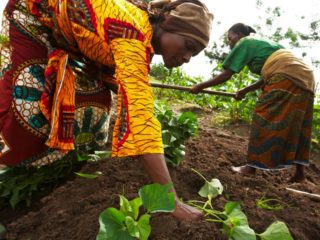Nigeria earns $35m from hibiscus export in 9 months - NAQS
Nigerian Agricultural Quarantine
Service (NAQS) has said the country generated $35 million within nine months in
2017 from hibiscus (zobo) export.
Dr Vincent Isegbe, Coordinating
Director, NAQS, disclosed this at the ‘National Survey of 13 Agricultural
Commodities by the Inter-ministerial Committee on Prevention and Control of
Mycotoxins in Agricultural Commodities’ meeting held in Abuja recently.
He explained that the committee hopes
to establish the prevalence type of mycotoxins and on which commodities as part
of efforts to help policy makers decide on what to do next and also open the
country’s economy to opportunities in research, development, public health
disease prevention and the general wellbeing of the nation.
Isegbe said hibiscus, popularly
called zobo, has high commercial value which the Jigawa State Government is
currently benefitting from and is now the largest producer of the commodity,
followed by other states like Kastina, Kano, Zamfara, Kebbi, Zamfara, Borno and
Yobe.
He urged state governments in Edo
and Kwara to also cultivate zobo plant due to the dry weather they have in
order to boost revenue generation in their respective states. He advised hibiscus
farmers in Jigawa and Kano states to form clusters as seen in other crops and
value chains. This will further boost production and export volumes and grant
access to government and donor interventions in capacity building and technical
assistance.
“In the last one year there has
been increase in exports of agricultural commodities. Hibiscus alone generated
$35 million in nine months. In the last one year we have done what we call
export improvement initiative for so many commodities.
“That means we are bringing those
commodities that were lying low to ensure that they are properly positioned for
export. They use it for organic colouring agents for drinks and wines, and as
natural blended drink as we drink zobo here in Nigeria, the pharmaceuticals
also use it for colouring because is organic.
“In 2016 it generated $20
million, while in 2017 it generated $35 million within nine months.”
Mycotoxins are poisonous
substances secreted by fungi on food and feed which are associated with
immunosupression, growth stunting, cancers, particularly liver and kidney
cancers, infertility and death among animals and humans. On contamination, they
constitute a serious food safety problem and have consequences on agriculture,
public health, national and international trade.




Comments
Post a Comment